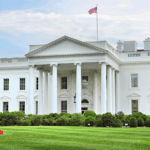In both Washington state and nationwide, campaigns are under way at the state and local level to pass regulations requiring employers to provide paid sick leave benefits to employees. The stated goal of these mandates is to improve public health by reducing workplace illness.
Since San Francisco implemented the first mandatory sick leave ordinance in the nation in 2007, several other cities and the state of Connecticut have followed suit. Research about the effectiveness of the mandates is beginning to accumulate.
A new Freedom Foundation report critically examines all 10 of the major studies examining the impact of paid sick leave laws in the four jurisdictions that have been studied: San Francisco, Washington, D.C., Connecticut and Seattle.
The report, which was informally reviewed by academic and professional economists, is the first to provide an overview of the research on paid sick leave mandates.
Michael Saltsman, research director at the D.C.-based Employment Policies Institute, has called the Freedom Foundation paper “the most comprehensive look at mandatory paid sick leave laws to date.”
The research indicates that many of the common arguments in favor of paid sick leave mandates are simply unsupported by the evidence. Separating rhetoric from data indicates that even studies conducted by supporters of paid sick leave reach startling conclusions about the ineffectiveness of the mandates.
Some of the report’s significant findings include:
- Workers come to work sick just as often with a mandatory paid sick leave policy as they do without one. Of the five studies to examine the effect of mandatory paid sick leave laws on presenteeism, defined as the frequency of employees coming to work sick, four found no reduction. Only one questionable study of Connecticut’s law found any reduction in presenteeism.
- Mandatory paid sick leave laws do nothing to reduce turnover. The evidence used by advocates to assert that mandatory sick leave laws reduce employee turnover, thus saving businesses money, is surprisingly weak. One problematic study of Connecticut’s paid sick leave law reported a slight decrease in turnover, while a more credible study of Seattle’s paid sick leave ordinance reported effectively no changes in turnover.
- Studies tend to exaggerate employer support for mandatory paid sick leave laws. All four of the studies that asked employers whether they supported the mandate found a majority of employers were supportive. In each case, however, a similar number of employers were already mostly or completely in compliance with the law and had to make few changes in response. Most businesses that had to create new or modify existing policies appear to be opposed to paid sick leave mandates.
- Consumers, workers and employers are all negatively affected by mandatory paid sick leave policies. Employer surveys indicate that affected businesses frequently respond to paid sick leave laws by increasing prices, decreasing employee benefits and hours, and limiting expansion. Even after taking steps to offset the additional expenses, many businesses report reduced profitability. Unsurprisingly, the negative consequences of paid sick leave mandates are concentrated among firms that have to implement new or modify existing paid sick leave policies.
While most advocates of sick leave mandates are doubtlessly well-intentioned, the data from both supporters and opponents of the policy indicate that a wide gulf exists between intentions and results.
A proper understanding of the research on mandatory paid sick leave policies provides policymakers with strong reasons to approach such requirements with a healthy dose of caution and skepticism.












